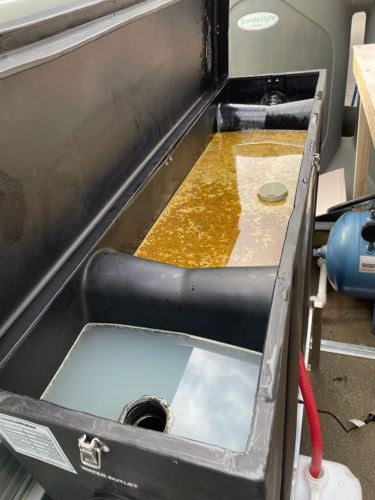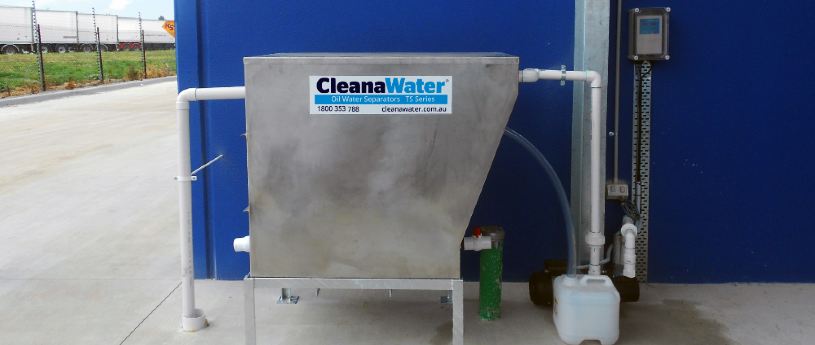Understanding the role of an oil-water separator
In complex industries, an oil separator is a simple yet important device. It plays a crucial role in keeping operations efficient and protecting the environment. Oil separators are used in various industries, and their importance is growing as responsible water management becomes more important.
This article answers the question: What does an oil separator do? We can better understand a key part of modern industrial processes by learning about its job, how it works, and the industries it's used in.
The basics of oil separators
An oil separator is a special device that does one important job: it separates oil from water. This simple-sounding task is really important for many industries. An oil separator helps us handle both substances properly by keeping oil away from water. This contributes to protecting the environment and keeping industrial operations sustainable.
Environmental preservation and regulatory compliance
Oil separators are not just about making operations run well; they're crucial for preventing environmental pollution. When oil gets into water or is released into streams, it can seriously harm aquatic ecosystems and disrupt the balance of our planet's natural resources.
Regulatory agencies worldwide set strict standards for what can be discharged into the environment to prevent this harm. They require that oil be removed before water is released. This is where oil separators come in—they play a crucial role in meeting these important rules and protecting water habitats.
A multifaceted role across industries
Oil separators are not just for one industry but are used in various fields. In the oil and gas sector, they're crucial for separating hydrocarbons from water. In manufacturing, they help clean coolant or wastewater. They're also essential in the automotive, marine, and food processing industries. These devices help keep processes running well while reducing their environmental impact.
The function of oily water separators
Delving deeper into operation
Oily water separators are a special type of oil separator designed very carefully to deal with complicated oil and water mixtures. They do more than just basic separation – they're good at capturing tiny oil droplets that regular methods can't handle.
Harnessing principles for separation
Oily water separators work based on basic science principles. Gravity, a natural force, helps separate oil and water because they have different densities. For instance, in air oil separators, centrifugal force separates oil from compressed air by creating surface tension.
There are also principles like coalescence and filtration at play. Coalescence means making small oil droplets come together into bigger ones so they're easier to remove. Filtration uses specially designed materials to catch these larger droplets effectively.
Ensuring cleaner water discharge
The main aim of oily water separators is to ensure that the water they release meets strict regulations. By effectively getting rid of even the tiniest bits of oil, these separators help create a cleaner, healthier environment. Whether in industries or marine use, oily water separators are crucial to responsible water management.

The role of separators in the oil and gas industry
In the oil and gas industry, separators play a specialised role that directly impacts the efficiency and effectiveness of production processes. These devices are crucial for separating complicated oil and gas mixtures, which is essential for refining and getting the most out of these valuable resources.
Separating diverse components
The complexity of oil and gas mixtures requires precise separation. Inside separators, the different components—crude oil, natural gas, and water—are carefully separated based on their varying densities and properties. This separation ensures that each component can be directed for additional processing, refinement, and distribution.
Maximising extraction and refinement
Separators play a critical role in resource extraction and refining. They improve production processes and the quality of the final products by effectively separating crude oil from natural gas and water.
Efficient separation also increases the purity of crude oil, making it more valuable and useful. Moreover, it's essential for getting the most out of valuable resources, which helps ensure the industry's economic viability.
The benefits of the oil separator function
Oil separators provide many benefits that extend well beyond just separating oil from water. These advantages positively impact various industries and showcase how efficient oil-water separation can be transformative.
1. Safeguarding equipment and machinery
One major benefit is equipment protection. Oil separators help safeguard equipment and machinery by removing oil contaminants from water. This extends the life of important assets and reduces maintenance expenses.
2. Driving cost efficiencies
Efficient oil separators lead to significant cost savings. They enable clean water discharge, meet environmental regulations, and reduce disposal and water treatment costs. Improved equipment efficiency also reduces downtime and increases productivity, which adds to overall cost efficiency.
3. Championing environmental preservation
The most significant benefit is environmental preservation. Oil separators are crucial for protecting aquatic ecosystems by stopping oil-contaminated water from entering natural habitats.

Oily water separator function and compliance
In a time when environmental concerns are growing, following water quality regulations is more important than ever. It's not just a legal requirement; it's a shared responsibility to protect our natural resources and keep our ecosystems healthy.
The crucial role in meeting discharge standards
Oil-water separators play a crucial role in meeting these discharge standards. These precise devices are made to take out oil contaminants and suspended solids from water. They act as the last line of protection in an oil reservoir before releasing water into the environment. Oil water separators' job is to ensure that the discharged water meets the strict requirements set by regulatory agencies, reducing the risk of harming the environment.
Trust Cleanawater to find an oil separator solution for you
Knowing how oil separators work isn't just about technical details; it's a way to make informed choices and act responsibly. Separating oil and water correctly isn't just a matter of operations; it's a promise to protect our planet's fragile ecosystems and resources.
As you navigate the realm of oil-water separation, we invite you to tap into Cleanawater's expertise and solutions. Explore our comprehensive range of oil water separation solutions, and let us shape a more sustainable tomorrow together.
Must Read
VapourGard: Your ultimate odour control solution
Control odours effectively and safely with CleanaWater's VapourGard system. Ideal for industries such as mining, landfill operations, recycling, and more, the VapourGard system uses lightweight partic ...
Read moreControl Odour with VapourGard
Control odours effectively and safely with CleanaWater's VapourGard system. Ideal for industries such as mining, landfill operations, recycling, and more, the VapourGard system uses lightweight partic ...
Read more